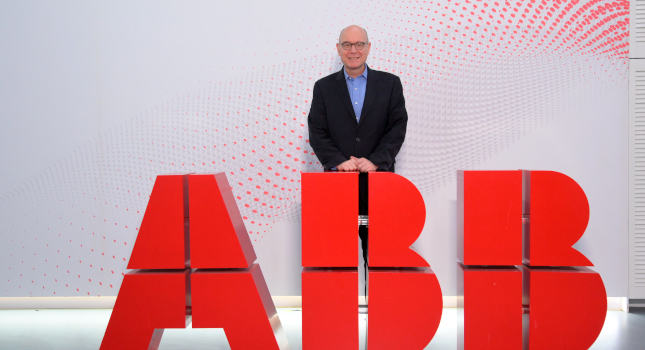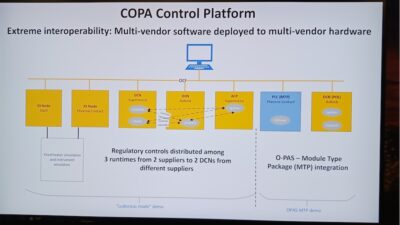Advanced process automation helps traditional industries meet low-carbon goals and high-quality sustainable development during the energy transition process. Automation digitalization and decarbonization tools are helping green transformation.

Learning Objectives
- Understand how industrial automation, software and services enable sustainability and digitalization.
- Learn how automation technologies and services are supporting China’s manufacturing by promoting localization.
- See examples of digitalization, industrial sustainability and how automation suppliers can help create value.
Process automation sustainability insights
- Industrial automation, software and services enable sustainability and digitalization improvements.
- Automation technologies and services are supporting manufacturing China and other areas of the world by promoting localization.
- Examples of digitalization, industrial sustainability and automation vendor value creation can help understanding.
Companies in process industries, notably mining, pulp and paper, metals and cement, face unprecedented challenges with intensifying global labor and skills shortages, supply chain uncertainty and growing demand for sustainability and decarbonization. Process automation can help. Process industry company leadership and operational teams use digital and intelligent automation technologies to develop smarter and more agile models for greater production efficiencies.
ABB, provider of industrial automation and electrification technologies, has many products for the discrete manufacturing industry, such as electric drives, motion control and control systems, as well as automation and digitalization software, products and services for process industries and hybrid industries. Control Engineering China interviewed Joachim Braun, division president of ABB Process Industries, about ABB’s business and technology progress and strategy.
Industrial automation, software, services enable sustainability, digitalization
“It’s a great trip,” said Braun about being in China again. “It’s a pleasure to see that our customer relations are as strong as ever.” ABB Process Industries is expecting record orders and profitability. During one week in China, Braun met with and received positive feedback from customers in the mining, pulp and paper and metals industries. He also looks forward to new opportunities.
Process automation is a complex field, with a variety of interconnected products, including electrical system cables, I/O setups, hardware and software systems. Braun said ABB Process Industries is dominated by two topics: Sustainability and decarbonization and digitalization.
-
Sustainability and decarbonization: Many ABB customer industries are heavy emitters of carbon dioxide (CO2, a greenhouse gas), and these companies have driven emission reduction and sustainable development in recent years.
-
Digitalization: Industries need to embrace digitalization for higher-quality products, higher productivity, more resilience and competitiveness.
How process industry technologies improve sustainability
Over the years, ABB has expanded its solutions for companies in process industries; Braun said general-purpose ABB products, such as switchgear, frequency converters, motors, distributed control systems (DCS) and instrumentation, can be seamlessly integrated to automate and digitalize mine, steel and non-ferrous metals, paper and cement, as well as in food and beverage, battery manufacturing, data centers and other expanding areas. Deep domain expertise enables ABB, customers and partners to more effectively support the move toward a sustainable future.
For example, every hoist (elevator) in the mining industry is different, depending on the depth of the shaft, the diameter required, the load required and the geological conditions in the mine. ABB can provide sophisticated engineer-to-order mining products and solutions. Braun believes that ABB deeply understands the underlying logic of various segments of process industries, beyond just selling individual products. The ability to transfer knowledge to customers is why ABB has been well received, he said.

Supporting China’s high-quality manufacturing by promoting localization
As global digital transformation accelerates, China’s manufacturing is aiming for high-quality development driven by digitalization and innovation, evolving from the “world’s factory” to “intelligent manufacturing in China.” Braun said a similar vision from other countries creates exciting opportunities for more manufacturing-sector investments, often with large government subsidies to help.
In mining and metals industries, operational efficiency of steel plants and design and electrification of mining trucks represent huge opportunities for ABB and its customers. Adding to solid digitalization experience in many vertical markets of process industries, a large professional engineering team works locally to provide comprehensive and customized intelligent manufacturing solutions. Traditional industries are eager to meet low-carbon goals and high-quality sustainable development during the energy transition process. ABB can integrate digitalization and decarbonization to promote green transformation.
Localization has been an ABB strength, Braun suggested. More than 90% of ABB sales in China, the company’s second-largest market worldwide, comes from locally manufactured products, solutions and services. In line with its long-term commitment of “in China, for China,” ABB has been further optimizing its business footprint by localizing its value chain.
“We have development teams in China, Sweden, Germany and India,” Braun says, “and I think the real strength of ABB is that we can bring these diverse talents from many places all into the same product development.”
The ABB Hoist Manufacturing Center in Lingang, Shanghai, begun in 2011, has provided Chinese users with mine hoist systems, hoist brake systems, as well as training services. ABB has a high-power rectifier (HPR) manufacturing base and local engineering center in China and Switzerland. In the future, it will be possible to take advantage of additive manufacturing, collaborative robots and augmented reality/virtual reality (AR/VR) for training and field service delivery.
Digitalization accelerates iterative product design
Throughout its history, Braun said ABB has been at the forefront of industrial revolution with cutting-edge technologies, driving the evolution and development of industries. In recent years, as generative artificial intelligence (AI), such as OpenAI’s ChatGPT, has become available for public use, AI and other emerging technologies for industrial use are expanding the depth and boundaries of automation technology applications. According to Braun, many ABB’s digital solutions rely on AI or machine learning (ML), for sifting data, reading trends and identifying operating conditions.
Companies are trying to adjust certain operating conditions, which can create more efficient processes or lead to greater wear and tear of equipment or higher power consumption. Braun said ABB’s power management system excels at managing different power sources, including conventional and solar power. The system helps maximize use of sustainable energy by identifying users’ consumption patterns over time.
AI is expected to accept more complex control tasks, such as coding safety protocols, unleashing more possibilities and value. Braun said that ABB also is taking advantage of the latest digital and intelligent tools to frequently update and enhance products to remain relevant for customers. The ABB Ability System 800xA distributed control system (DCS) provides an example. As user infrastructure improves, the advanced DCS will keep pace with the times and incorporate functions like HTML5 and generative AI while ensuring compatibility, with a consistent focus on long-term support for customer lifecycle services.
How to move toward a sustainable industrial future
Flourishing industrial development requires a backbone of human talents. Unlike fast-moving consumer packaged goods (CPG) and food and beverage industries, traditional process industries, including the traditional mining, often are not the first career choices for many young engineers. Negative perceptions include high risks and high pollution. On the other hand, heavy process industries are in urgent need of more specialized, talented people to support digital transformation now underway. How is ABB helping to resolve these challenges?
Braun said that because the new generation of young people have a greater concern for the environment, they prefer to work for environmentally friendly companies. Mineral resources, such as copper, nickel and lithium, are cornerstones for modern life, evident in cell phones, automobiles, new energy batteries and wind energy power plants. Importance of sustainable development of these natural resources cannot be overstated. ABB has been actively supporting China’s dual-carbon goals and working to dispel stereotypes about process industries by underscoring use of digitization to drive decarbonization. For example, for mining companies to attract talent, it is important to clarify that a safe, green and high-quality mining industry is on the same page as sustainable social development.
ABB has been deploying highly efficient solutions in its facilities and helping customers improve energy efficiency and reduce environmental impact. In the mining industry, ABB supports customers from the early stages of mine design. ABB Ability eMine products, with fully integrated electrification and automation systems, can electrify any equipment from mine to port. In addition, with the help of ABB’s digital solutions, mine enterprises can achieve remote monitoring and full automation of mining from downtown operation centers, relieving the headaches of mountainside stationing, harsh conditions and safety threats to the personnel. In these ways, ABB helps process industries to solve the problem of present and future talent shortages. ABB solutions are expected to be deployed to Chinese markets, as well.
Value creation, digitalization for industrial sustainability
By accelerating value creation through digitalization, ABB has been committed to working closely with its partners to promote development in China and the rest of the world with more diversified, reliable and higher-quality products and services. While ABB maintains self-reliance in local markets and has a deeper integration into local value chains, Braun said ABB also seeks growth around sustainability solutions, such as production of green hydrogen, production of car batteries, electrification of mines, industrial decarbonization, finding alternative solutions for the pulp and paper industry and other areas. Braun expects ABB to offer more solutions and benchmark projects in process industries, contributing to a better world in the future.
Stone Shi is executive editor-in-chief, Control Engineering China; Edited by Mark T. Hoske, content manager, Control Engineering, CFE Media and Technology, [email protected].




